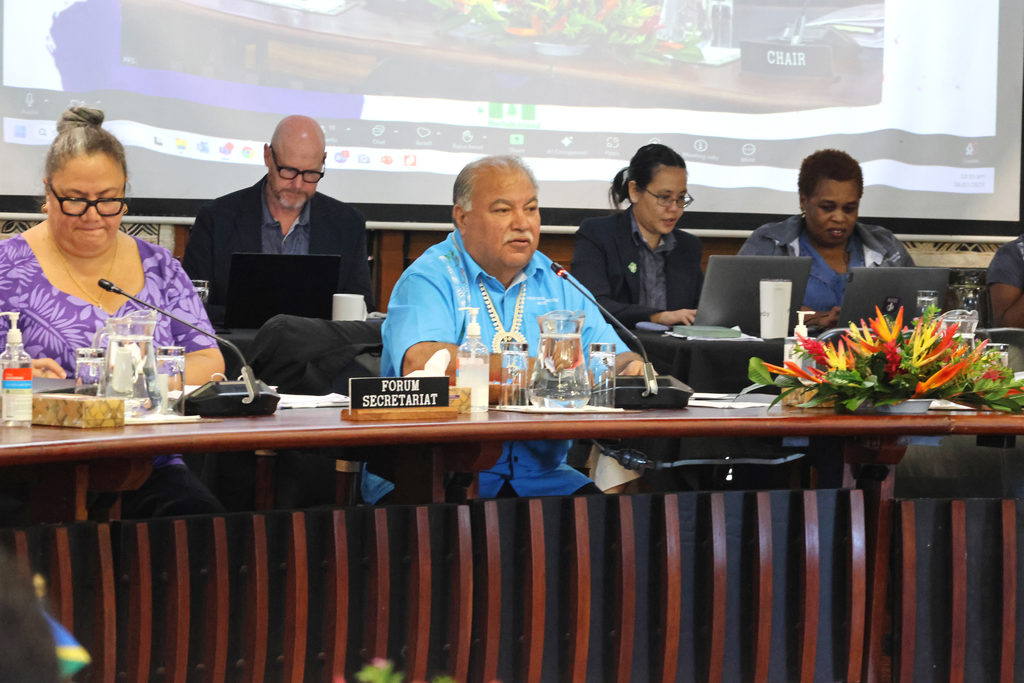REGIONAL economic integration is no longer an abstract goal for Pacific countries but the most viable pathway to resilience, said Secretary General for the Pacific Islands Forum (PIF) Baron Waqa as he issued a stern reminder to Pacific trade ministers attending the 2025 Forum Trade Ministers Meeting in Suva of the global challenges now faced by countries in the Pacific.
“Since you last met, the global trading environment has become even more complex.
“From rising protectionism and trade wars to climate shocks and geopolitical instability, our already vulnerable Pacific economies are absorbing more external pressures that threaten livelihoods, fiscal stability and long-term growth,” Mr Waqa said.
“Our response must be collective and grounded in practical cooperation.
“Regional economic integration is not an abstract goal. It is the most viable pathway to resilience.
“This is the central premise of the 2050 Strategy for the Blue Pacific Continent, that together, we are stronger in protecting our development space and building shared prosperity.”
Trade ministers from PIF member countries are currently in Suva for their annual meeting and will deliberate on the master plans already in place to achieve regional integration, including the Pacific Roadmap for Economic Development (PRED) and its successor the Pacific Aid-for-Trade Strategy 2026–2030.
Also on the agenda are labour mobility, the proposed Kava Declaration, fisheries subsidies, digital readiness and private sector resilience.
“These issues must be viewed through a lens of strategic regional cooperation,” Mr Waqa said.
“We cannot afford siloed approaches or passive engagement. What is needed now more than ever are coordinated actions with clear priorities backed by political will and technical execution.”
Echoing Mr Waqa’s call for unity, chairman of the 2025 Forum Trade Ministers Meeting, Tonga’s Minister for Trade and Economic Development Kapelieli Lanumata said the meeting must not be seen
“just as a biennial event” but a strategic forum to shape coordinated regional responses to a plethora of challenges that are now faced by Pacific countries.
“In our region, we are simultaneously battling rising climate risks, deep structural vulnerabilities, and a persistent health crisis,” Mr Lanumata said.
“Climate-induced disasters cost our economies over $US1.2 billion in 2023. Meanwhile, NCDs remain the leading cause of mortality, reducing workforce productivity and burdening our national health systems.
“These challenges are compounded by imported inflation, high unemployment, and rising debt. Our average unemployment rate exceeds 15per cent in some countries and the Pacific’s average debt-to-GDP ratio stands above 45 percent.
“For many families, the cost of living continues to rise faster than income.”
Represented at the meeting are Australia, Cook Islands, Federated States of Micronesia, Fiji, Kiribati, Nauru, New Zealand, Tuvalu, Vanuatu, Niue, Papua New Guinea, Republic of the Marshall Islands, Samoa, Solomon Islands and Tonga.
Note: This article was first published on the print version of the Fiji Times dated July 19, 2025



